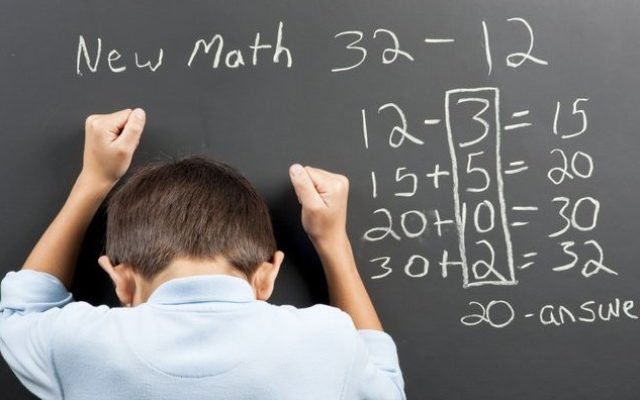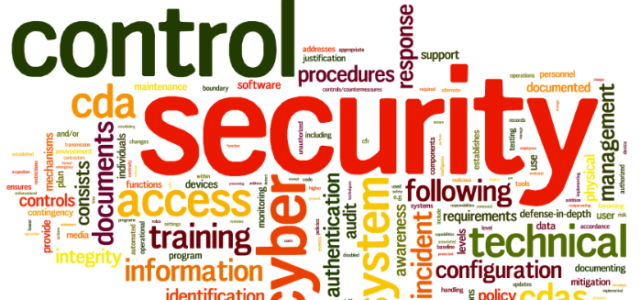Marketing scientist Kevin Gray asks Professor Mark Reckase, a noted psychometrician, what business people most need to know about maths and how to learn it.
KG: There’s a lot in the news these days about data science, machine learning and artificial intelligence (AI). Decisions must become data-driven or your company won’t survive, we’re told. To most of us this suggests mathematics, which many find intimidating. Can anyone learn math or does it require a special gift?
MR: My view on this is complex. It stems from tutoring students who were having trouble with introductory statistics when I was a graduate student. I found that they all could learn the basic concepts once they overcame misconceptions and were given the proper context for what they were learning. This is not very hard to do when doing one-on-one tutoring, but it is challenging when trying to teach a class of 30 or more students who have wildly different backgrounds. As a course instructor, it is important to present important concepts in a number of different ways to find the way that will connect with students with different backgrounds. I think some faculty do not gain an understanding of students’ varying backgrounds and they may not want to take the time to figure out how to present the material in different ways.
I don’t think the material in a statistics or mathematics course is any more difficult than that required to learn to use the typical smartphone, or play a typical computer game. There is a need to be able to deal with abstract symbols and to follow a series of steps. A major difference is that persons see the immediate benefit of mastering their smartphone, but it takes some time to appreciate the value of the concepts from statistics and mathematics courses. I am frequently surprised that things I had little interest in when I was a university student are useful now. The trigonometry that I had to learn when I was in high school, and that I thought I would never use, was very helpful when I started using multidimensional statistical models.
KG: I sometimes use the made-up term ‘quantiphobia’ to describe a fear of numbers and unease with mathematics in general. In my experience, this is quite common in the business world. Even managers with MBAs can struggle with simple cross tabulations and feel much more comfortable with graphics. Do you have any tips on how to overcome fear of numbers and mathematics?
MR: This is a tough one for me because I find graphic presentations of information as very helpful. But I remember a course I took one summer called ‘How to Lie with Statistics’. That course basically taught how to make small differences look big and to hide important differences in noisy pictures. By showing how to do those things, it also showed how to look for things that are deceptive.
The things that counteract fear are familiarity and understanding. A good example is traveling by airplane. Airports are very complicated places with a lot of rules and a lot of confusion. But, frequent travelers can get through the process pretty efficiently. I might get anxious over a close connection between flights, but I know what has to be done to make that connection, and I know when to get worried. But imagine what it is like for the infrequent traveler. That person will not know how long it takes to go through security or how far it is from one gate to the next. These things can result in a lot of fear because of the unknown. So my best advice is to find a way to gain familiarity and understanding. The most efficient way to do that is to find a good ‘coach’ – someone who can patiently explain things and help gain familiarity with those areas of mathematics and statistics that are most immediately useful.
KG: In your experience as an educator who has used math extensively, what should people without a strong background in mathematics focus on most?
MR: There is no single answer to this question. The focus should be on what is most important for current activities. If a person’s occupation is related to financial issues, they need to understand the mathematics used in accounting and economics. If they are interested in understanding the meaning of large marketing data sets, statistical methods used for summarizing and clustering are most useful. The trick is to identify what is needed and then to identify an accessible resource to gain the level of information needed. This can be thought of as akin to learning a foreign language. If the plan is to make a brief visit to a country, ‘tourist’ language learning is sufficient. How do you order food and find the bathroom? But if someone will be in a country for a long time and be conducting business, a much higher level of language competence is needed. The first question for background in mathematics and statistics is whether a tourist level of knowledge is sufficient, or of greater expertise is needed. Tourist level can be picked up on one’s own. Higher level proficiency usually requires a tutor – focused workshops on the type of mathematics that is needed.
KG: Now that we’re out of school and in labor force it will be impractical for many of us to go back to school full time. Do you have any tips about how to learn the math we need to learn most?
MR: I am learning new mathematics all of the time because I discover that I need it to do something I want to do. My own experience is that it is tough to learn abstract mathematical concepts on your own unless you are really dedicated and have the time. The more efficient way is to find webinars or in-person workshops through professional organizations or software companies about specific hot topics. Those can be used to get ‘tourist’ level mathematics very efficiently, or maybe a slightly higher level. The Wiley ‘For Dummies’ series is not really for dummies but another good way to get to the ‘tourist’ level.
KG: Thank you, Mark!
Kevin Gray is president of Cannon Gray, a marketing science and analytics consultancy.
Mark Reckase is University Distinguished Professor Emeritus, Department of Counseling, Educational Psychology and Special Education at Michigan State University. He specializes in the development of educational and psychological tests, educational policy related to testing, and the psychometric theory that supports the assessment of cognitive skills and content knowledge. He received the 2016 U.S. National Council on Measurement in Education Career Award and is the author of the widely-cited book Multidimensional Item Response Theory.
Article by channel:
Everything you need to know about Digital Transformation
The best articles, news and events direct to your inbox
Read more articles tagged: Analytics, Featured, Marketing Analytics






